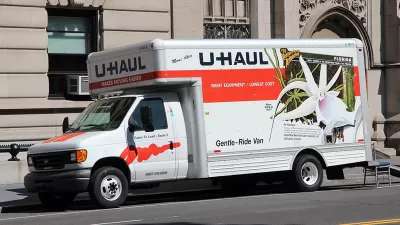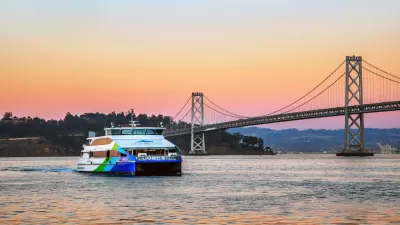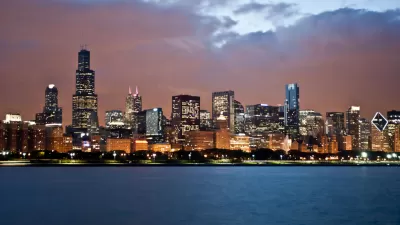In addition to determining the most popular destinations for 18 to 35-year-olds, Mayflower (the moving company) found that 41 percent of this age group have no intention of staying at their selected cities permanently.

The below cities may be the most popular, but the destinations tend to be short-lived.

In addition to the 41 percent finding stated above, the survey found:
- "53 percent of millennials say they’re likely to make a temporary, or “vacation,” move in the next five years.
- "74 percent of millennial movers relocated to a new city with a timeline in mind, meaning they had a plan to leave their vacation city in a certain timeframe."
San Francisco may be at the top of the list, but millennials are not staying long, reports Eric Tang for the San Francisco Chronicle.
The Mayflower survey includes insights from academia and millennials that help to explain the moving patterns of this generation compared to others of the same age group.
The study also found millennials continue to be drawn to urban centers, with 69 percent currently residing in a city or an inner suburb near the city. The age group with the highest percentage of respondents living in an urban environment is 30 to 35-year-olds, with 81 percent currently living in a big city or an inner suburb near the city.
When the results are contrasted with a March LendingTree survey that ranked the most popular cities for millennial homebuyers, the clear winner, as in most popular city for millennials, is Washington, D.C. Another millennial survey last November by Apartment List showed the popularity of some smaller cities such as Charlotte, N.C. and Virginia Beach.
FULL STORY: Millennials Favor “Vacation Moves”

Planetizen Federal Action Tracker
A weekly monitor of how Trump’s orders and actions are impacting planners and planning in America.

Chicago’s Ghost Rails
Just beneath the surface of the modern city lie the remnants of its expansive early 20th-century streetcar system.

San Antonio and Austin are Fusing Into one Massive Megaregion
The region spanning the two central Texas cities is growing fast, posing challenges for local infrastructure and water supplies.

Since Zion's Shuttles Went Electric “The Smog is Gone”
Visitors to Zion National Park can enjoy the canyon via the nation’s first fully electric park shuttle system.

Trump Distributing DOT Safety Funds at 1/10 Rate of Biden
Funds for Safe Streets and other transportation safety and equity programs are being held up by administrative reviews and conflicts with the Trump administration’s priorities.

German Cities Subsidize Taxis for Women Amid Wave of Violence
Free or low-cost taxi rides can help women navigate cities more safely, but critics say the programs don't address the root causes of violence against women.
Urban Design for Planners 1: Software Tools
This six-course series explores essential urban design concepts using open source software and equips planners with the tools they need to participate fully in the urban design process.
Planning for Universal Design
Learn the tools for implementing Universal Design in planning regulations.
planning NEXT
Appalachian Highlands Housing Partners
Mpact (founded as Rail~Volution)
City of Camden Redevelopment Agency
City of Astoria
City of Portland
City of Laramie





























